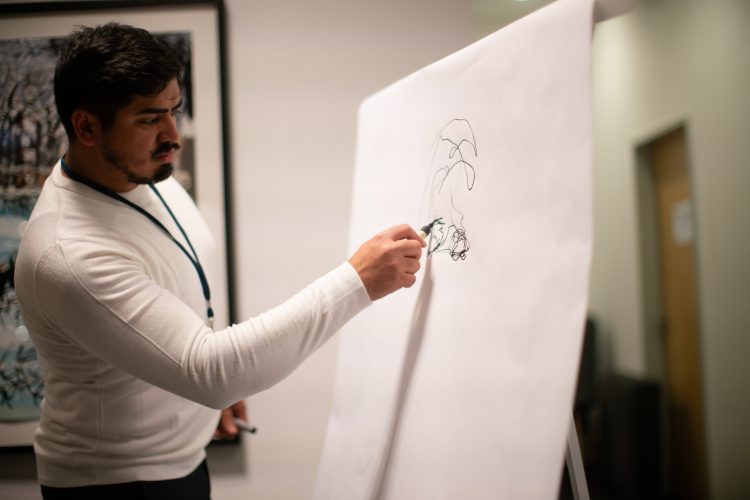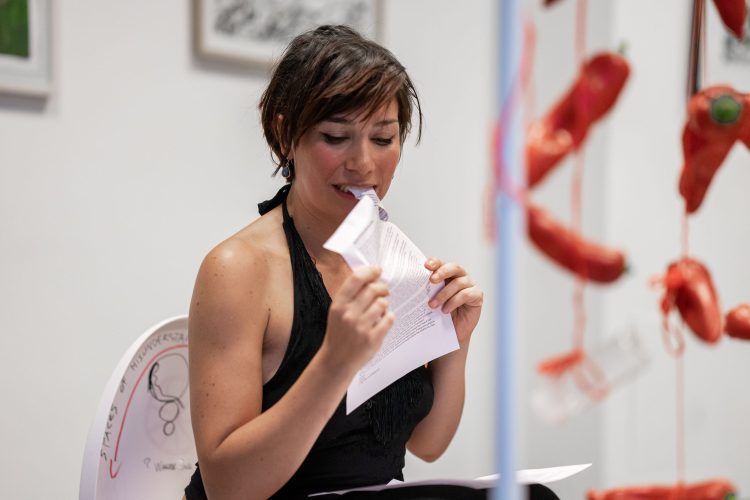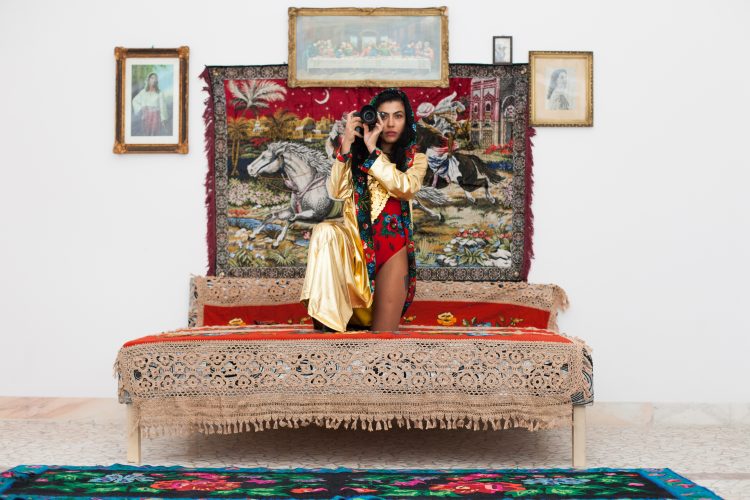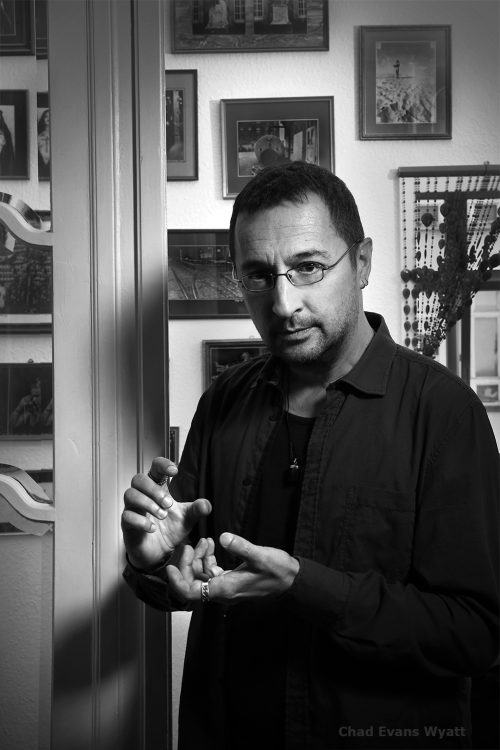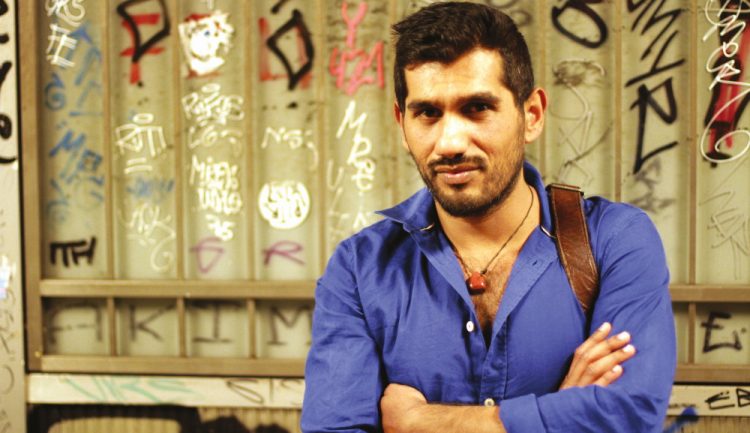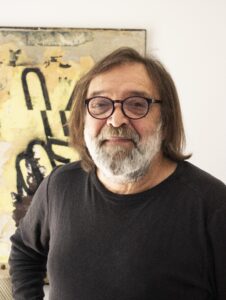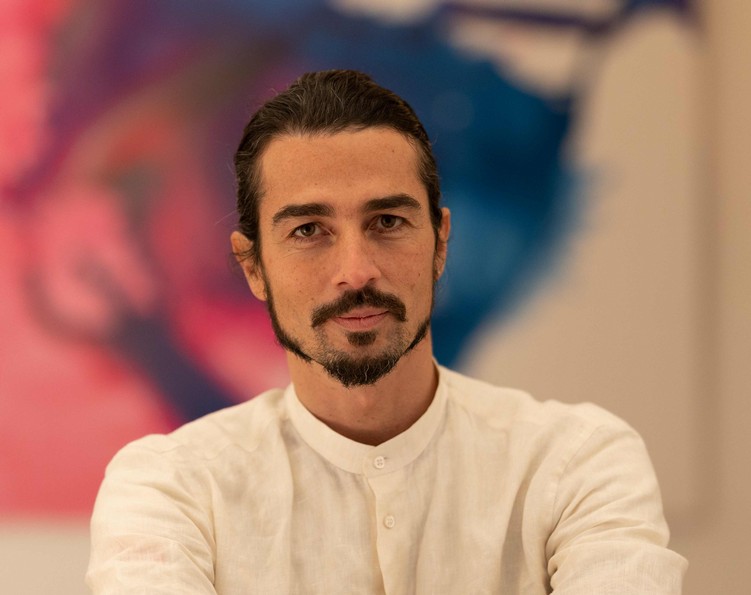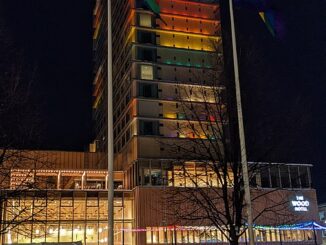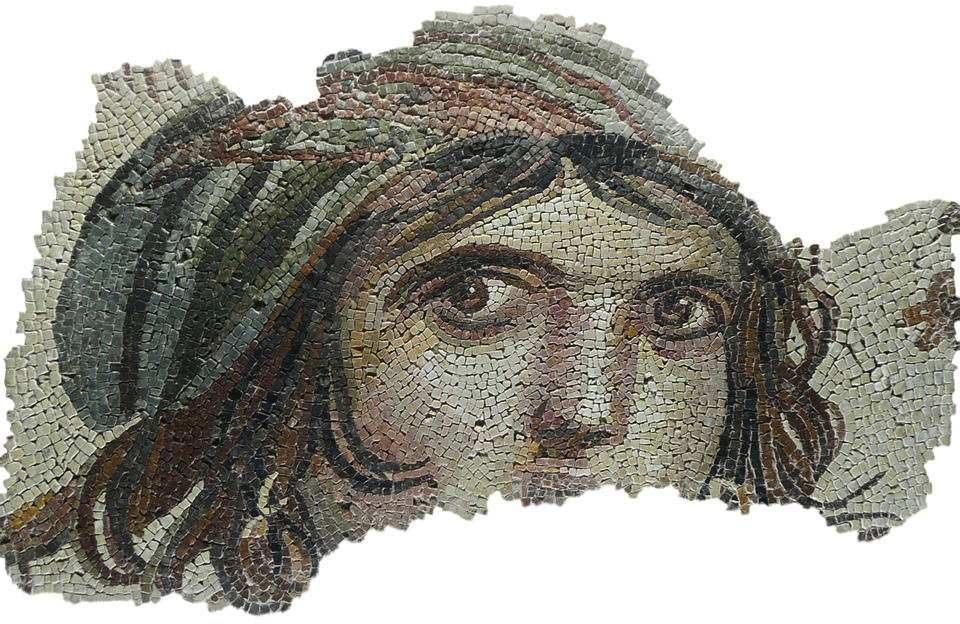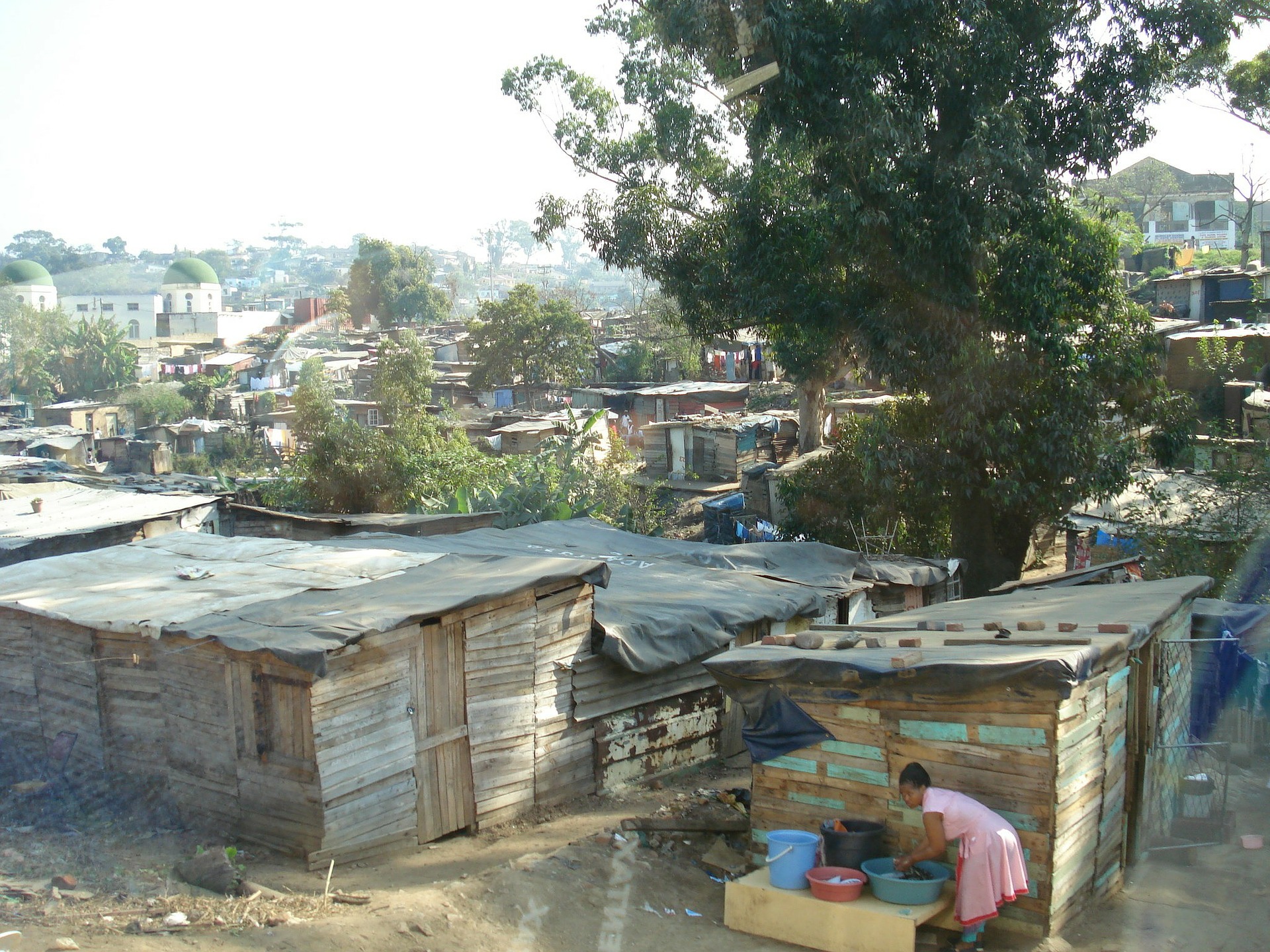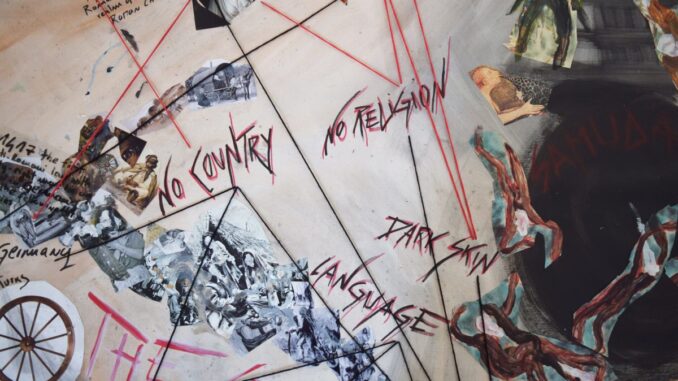
Berlin Tales Emanuel Barica, Luna De Rosa, Mihaela Drăgan, Nihad Nino Pušija, Mersud Selman, Alfred Ullrich, David Weiss
15 December, 2023 – 5 April, 2024
Exhibition opening: 14 December 2023, 6.00 – 9.00 pm
Berlin has consistently played a crucial role in the cultural and social life of the Roma diaspora and, at the same time, Roma had also made a significant impact on the history of the German capital. However, limited initiatives have addressed the intertwined cultural history of Roma and Berlin.
The Berlin Tales exhibition unveils the cultural history of Berlin – a narrative that remains largely unknown, concealed, and suppressed yet simultaneously boasts a beautifully rich genealogy. The exhibition showcases key moments and significant contributions made by Roma to Berlin, and influencing German and European culture since the 1970s to the present day.
The Berlin Tales exhibition, along with its associated events including concerts, performances, and discussions, illustrates the enduring and substantial cultural, social, and political presence of Roma in Berlin — both as artists and as an audience. The narrative reveals a potent counterculture that collaborates with other peripheries, aiming to challenge racist representations and combat stereotypical, homogenized depictions of minorities prevalent in mainstream media and society at large. The display also highlights the boundless creativity of contemporary artists, performers, and musicians of Roma origin. All contributing artists, while of diverse nationalities and personal stories, developed deep connections to Berlin´s cultural landscape. These individuals contemplate alternative modes of self-determination and self-representation, inventing new means to narrate the Roma “tale” with the vision to empower and “strike back”—to assert complete control and halt the escalation of contradictions and conflicts within and outside Roma communities. They aspire to envision and create a peaceful and prosperous future for all.
The exhibition is a participatory and cumulative project. ERIAC curated the initial artworks, documents, research materials, archive photos, posters, newspapers, books, videos, websites, and personal memorabilia from the 1970s to the present day. The process of building of the subjective archive of Roma cultural history in Berlin is ongoing – contributions are encouraged and welcomed until the exhibition concludes its run.
Emanuel Barica (1994) is a graphic artist from Romania, whose artistic path is being articulated by the city of Berlin. A natural talent, Barica developed the method of “drawing by intuition”, and often uses the sound of music in a performative way. Barica has recently created the ‘Romani Gallery’, drawing portraits of the most prominent figures of the Roma movement in the frame of the Barvalo exhibition (May 10-September 4, 2023) at the Mucem in Marseille.
Luna De Rosa (1991) is an Italian activist and multidisciplinary artist from the Roma diaspora who lives and works between Berlin and Milan. The body serves as the starting point of her artistic work. Through interventions in the public sphere, she expresses the relationship that binds the body to the social context that essentially governs and defines it. In recent years, her artistic work has focused on the vulnerability of ethnic minorities, particularly the Roma, who experience significant exclusion and racism.
Mihaela Drăgan (1986) is an actress and playwright who lives and works mainly in Bucharest, but also in Berlin. In 2014, she founded Giuvlipen Theatre Company, whose performances have a feminist agenda and bring to life the issues of early marriage, antigypsyism, hate speech, hyper-sexualization, eviction, and heteronormativity in order to promote discussion and critical thinking. In Berlin, she formed part of the Maxim Gorki Theatre ensemble and performed in the ‘Roma Armee’ and ‘Medea Rromnja’ plays.
Nihad Nino Pušija (1965) is a photographer and artist originally from Bosnia, living and working in Berlin since the early nineties. He was one of the exhibiting artists of the First Roma Pavilion, ‘Paradise Lost’ in the frame of the Venice Biennale, 52nd International Art Exhibition in 2007. Pušija considers photography to be a medium for (re)gaining one’s identity and self-image, thus looks at his subjects through dignifying lenses. Art and community are intertwined in Pušija’s work, who not only followed the changes of Roma lives in the post socialist era, but also the main actors of the Roma cultural movement internationally.
Mersud Selman (1986) was born in Bihać, Bosnia and Herzegovina and finished the Academy of Arts in his homeland. A trained painter, he also participated in the Roma English Languge Programme at the Central European University (CEU) in Budapest and later found his home in Berlin. He has exhibited in several international shows from Austria to Italy, aiming to offer an alternative to the stereotypical depictions of Roma.
Alfred Ullrich (1948) is a contemporary artist from a Sinti family from Austria, who is connected in many ways to Berlin and Germany. For years, he has been organising etching workshops with his “Rolling Print Shop”, not only with members of the Sinti/Roma community. Ullrich was exhibiting artist of the second Roma Pavilion, ‘Call the Witness’ in the frame of the 54th Venice Biennale in 2011.
David Weiss (1985) explores various artistic mediums, revolving around reflections on natural sciences, society, history, and literature. Currently, his focus centers on agricultural topics and climate change. Through these diverse techniques, Weiss creates a parallel universe in his works, where the boundaries between illustration, comic, collage, drawing, painting, sculpture, and printmaking blur. His attention is drawn to boundaries and the liminal, where the peripheral gains significance in the context of applied interculturalism.
European Roma Institute for Arts and Culture
Reinhardtstraße 41–43, 10117 Berlin
Opening hours: Monday – Friday, 10-17
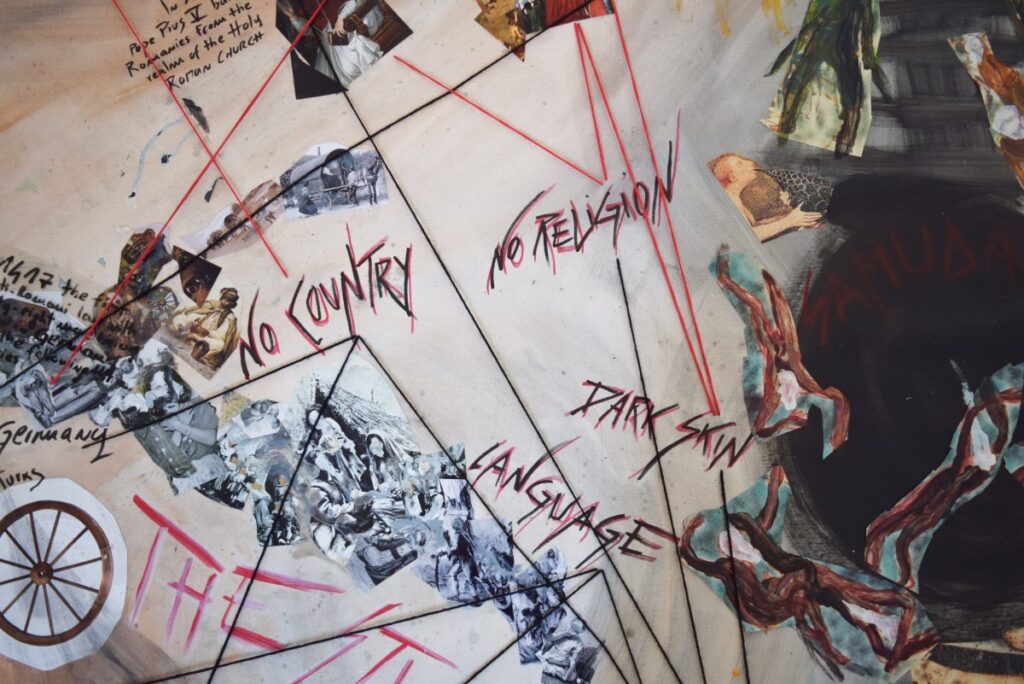
Supported by the Senate Department for Culture and Social Cohesion of the State of Berlin:

redaktionen@dikko.nu
Att vara en oberoende tidning kostar pengar därför använder vi oss av crowdfunding. Det innebär att människor med små eller stora summor hjälper till att finansiera vår verksamhet. Magasin DIKKOs insamlingen sker via swish: 123 242 83 40 eller bg: 5534-0046
Vill du annonsera eller sponsra, synas eller höras i våra media?
Kontakta oss på redaktionen@dikko.nu
eller ring 0768 44 51 61
IBAN: SE19 9500 0099 6042 1813 4395
BIC: NDEASESS

